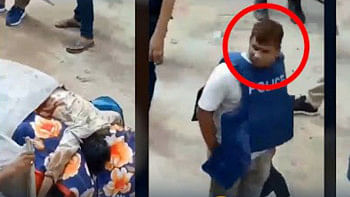Review plea acceptability hangs in the balance
The Supreme Court decision on whether the review petition of a war crimes convict was acceptable is still unknown, since its full judgment on petitions filed by Abdul Quader Mollah has not been released yet.
Quader Mollah, who was executed on December 12 last year, had filed two petitions with the SC on December 10 and 11 seeking review on his death penalty and life imprisonment handed down for war crimes.
On December 12, a five-member bench of the Appellate Division of the SC headed by Chief Justice Md Muzammel Hossain dismissed the review petitions hearing arguments from the defence and the prosecution.
The apex court, however, in the brief verdict did not disclose its decision on whether the review petitions were maintainable. Therefore, it is not clear if war crimes convicts can move such petitions before the SC against its verdict.
Additional Attorney General and Coordinator of the prosecution MK Rahman told The Daily Star that it could be known after the release of the full verdict on Quader Mollah's review petition.
SC sources said the judges of the bench concerned were writing the judgment.
Shishir Monir, a lawyer for Jamaat-e-Islami leader Quader Mollah, said they needed to know the SC decision on whether war crimes convicts had the right to move review petitions.
Appeals filed by some other convicts in war crimes cases are pending with the Appellate Division. After its delivery of a verdict in an appeal, the question whether a review petition is maintainable would come, he said.
Neither MK Rahman nor Shishir Monir could say when the SC's full judgment on Quader Mollah's review petitions would be released.
During the hearing of Quader Mollah's review petitions, his lawyer Abdur Razzaq told the court that his client had the right to move the petitions to the apex court as per the constitution.
He also argued that the SC had inherent powers to review its verdict.
Attorney General Mahbubey Alam opposed it saying that the petitions were not acceptable as per the constitution, since Mollah had been tried and convicted under the International Crimes (Tribunals) Act, 1973.
Appeals in the war crimes cases against six others are now pending with the Appellate Division. They are: former Jamaat ameer Ghulam Azam; its leaders Ali Ahsan Mohammad Mojaheed, Delawar Hossain Sayedee and Muhammad Kamaruzzaman; BNP leader Salauddin Quader Chowdhury, and its former leader Abdul Alim.
Two international crimes tribunals have awarded capital punishment to Mojaheed, Sayedee, Kamaruzzaman and Salauddin and handed down 90 years' imprisonment to Ghulam Azam and life term to Alim for their wartime offences.
The apex court is now dealing with the appeal of Sayedee, and its proceedings may end in April.

 For all latest news, follow The Daily Star's Google News channel.
For all latest news, follow The Daily Star's Google News channel. 




Comments